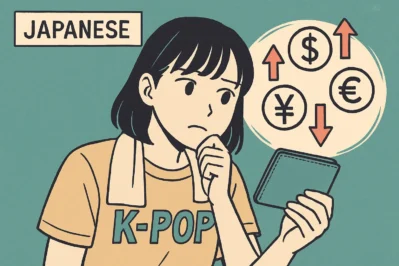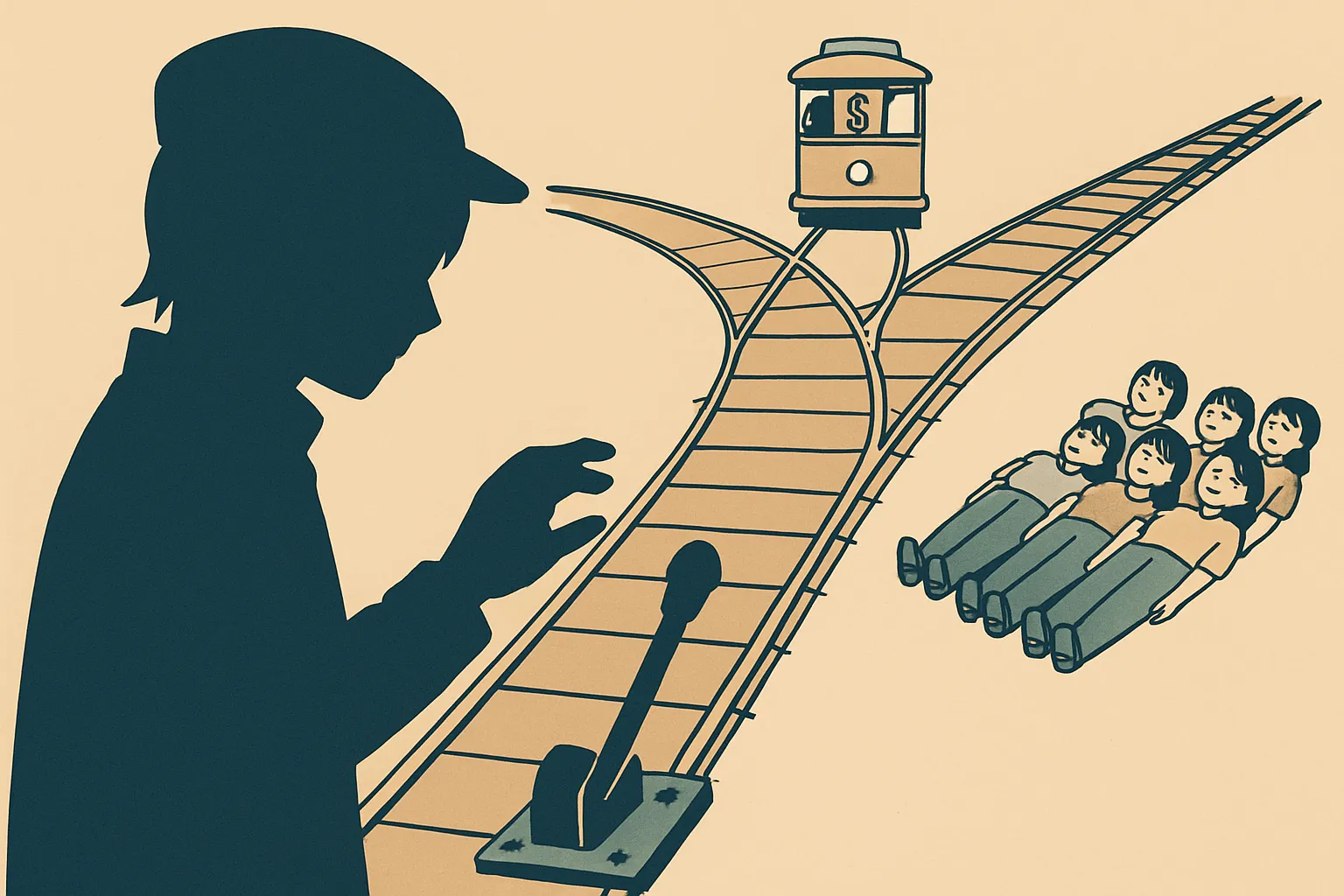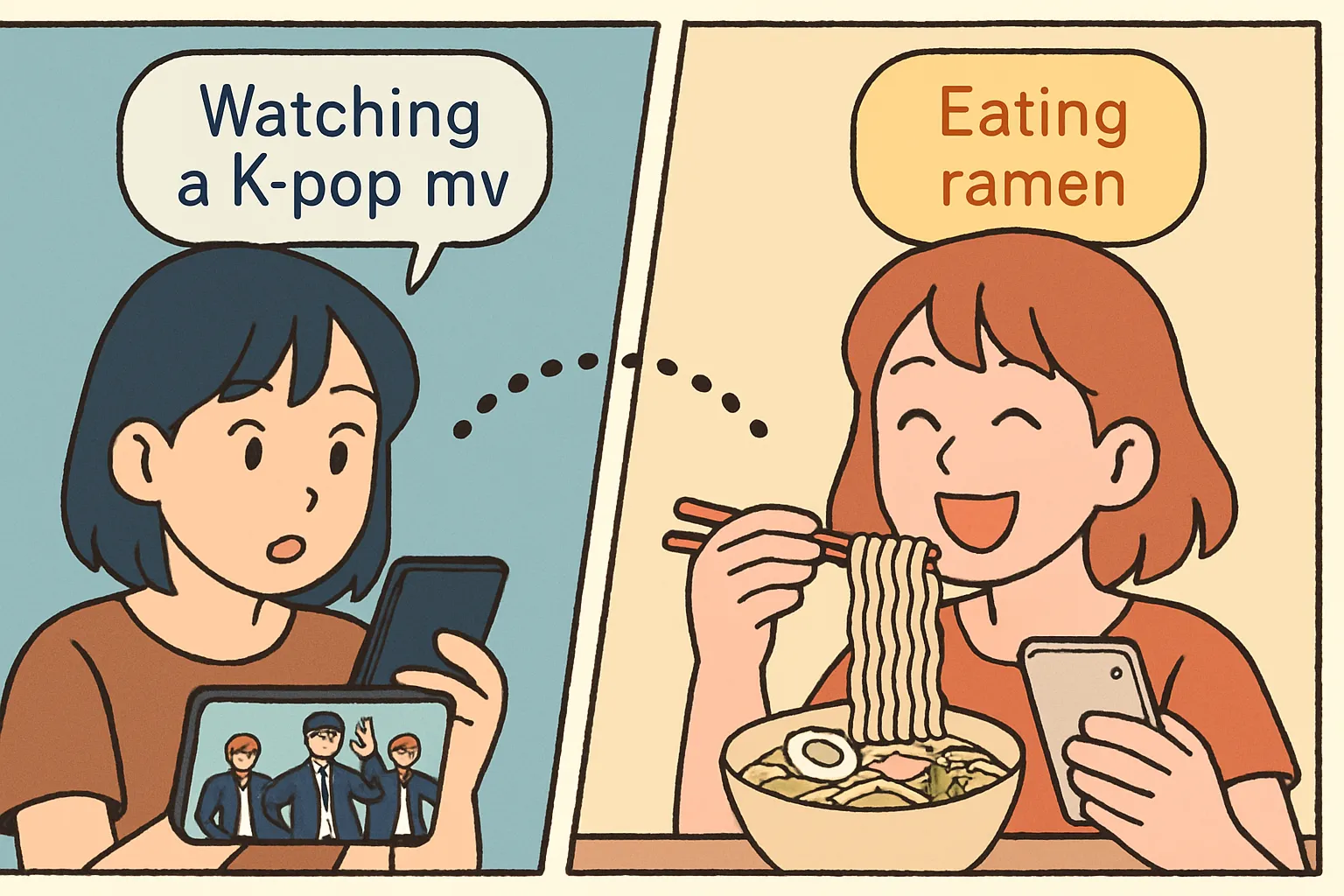Hello! This is Daily Hangeul, here to upgrade your Korean skills!
Are you planning a trip to Korea for a concert? Or maybe you’re thinking of buying the latest K-drama merchandise online? If so, you’ll definitely be dealing with money and exchange rates! Nowadays in Korea, with the explosive popularity of K-culture worldwide, understanding how major currencies like the US Dollar, Euro, Japanese Yen, and Chinese Yuan work is more important than ever. Today, we’ll learn the essential Korean vocabulary to talk about these currencies like a pro. Let’s make your fan life and travels even smoother!
Key Expressions
Here are today’s essential words for navigating the world of foreign exchange.
- 한국어 표현: 기축 통화 (基軸 通貨)
- 발음 [로마자]: Gichuk Tonghwa
- 영어 뜻: Reserve Currency
- 상세 설명: This is a more advanced term, perfect for your B2 level! It refers to a foreign currency that is held in significant quantities by central banks or other monetary authorities as part of their foreign exchange reserves. Think of it as the “main character” currency in the global economy. The 미국 달러 (Miguk Dalleo – US Dollar) is the most famous example. You’ll often hear this term in Korean news about the economy.
-
한국어 표현: 강세 (強勢) / 약세 (弱勢)
- 발음 [로마자]: Gang-se / Yak-se
- 영어 뜻: Strong / Weak (in value)
-
상세 설명: These two words are crucial for describing a currency’s value. If a currency is 강세, it means it has a strong value and you can buy more of another currency with it. If it’s 약세, its value is weak. For example, “요즘 달러가 강세예요” (Yojeum dalleo-ga gang-se-yeyo) means “The dollar is strong these days.”
-
한국어 표현: 환율이 오르다 / 내리다
- 발음 [로마자]: Hwanyul-i oreuda / naerida
- 영어 뜻: The exchange rate goes up / goes down
-
상세 설명: This is the most common way to talk about exchange rate fluctuations. In Korea, the exchange rate is usually expressed as how many Korean Won (KRW) you need to buy one unit of a foreign currency (e.g., 1 USD = 1,300 KRW). So, if the “환율이 오르다,” it means the foreign currency has gotten stronger (강세) because you need more Won to buy it. If the “환율이 내리다,” the foreign currency is weaker (약세).
-
한국어 표현: 안전 자산 (安全 資産)
- 발음 [로마자]: Anjeon Jasan
- 영어 뜻: Safe-haven asset
- 상세 설명: This term describes an investment that is expected to retain or increase in value during times of market turbulence. In the world of currencies, the US Dollar and Japanese Yen (일본 엔화 – Ilbon En-hwa) are often considered 안전 자산. When the global economy feels unstable, you might hear on the news that investors are moving their money into these currencies.
Example Dialogue
Let’s see how these expressions are used in a real conversation between two K-pop fans!
A: I really want to buy the new LE SSERAFIM photobook, but I’m waiting for a good time.
(르세라핌 새 화보집을 사고 싶은데, 좋은 타이밍을 기다리고 있어.)
B: Why? Is it because the US Dollar is the world’s main 기축 통화 and it’s so strong right now?
(왜? 미국 달러가 세계의 주요 기축 통화인데 지금 너무 강세라서?)
A: Exactly. The won-dollar 환율이 너무 올라서 it feels a bit expensive for me right now. I hope the rate 내리다 soon.
(정확해. 원-달러 환율이 너무 올라서 지금은 좀 비싸게 느껴져. 환율이 곧 내렸으면 좋겠어.)
B: I know what you mean. People say the Yen is an 안전 자산, but even its value has been quite weak lately. The economy is so unpredictable.
(무슨 말인지 알아. 사람들이 엔화는 안전 자산이라고 하는데, 요즘엔 엔화 가치도 꽤 약세더라. 경제는 정말 예측하기 힘들어.)
Culture Tip & Trend Deep Dive
Your K-Pop Budget and the Global Economy!
Have you ever wondered why the price of your favorite group’s album seems to change when you buy it from an international store? It’s all about these expressions we learned today!
When you hear on the news that the dollar is in a state of 강세 (gang-se), it’s fantastic news for international fans planning a trip to Korea. It means your home currency can be exchanged for more Korean Won. Suddenly, that concert ticket, the merchandise, and all the delicious street food become cheaper for you! This is because the “원-달러 환율이 올랐다” (the won-dollar exchange rate went up).
However, for Korean fans who want to buy goods from overseas, or for Korean companies that need to import materials, it’s the opposite story. A strong dollar makes foreign goods more expensive for them. So, the next time you check the exchange rate before buying K-pop merch, you’ll understand the global economic forces at play. You’re not just a fan; you’re a global consumer!
Wrap-up & Practice
Great job today! We learned some key B2-level terms to discuss major currencies and exchange rates: 기축 통화 (reserve currency), 강세/약세 (strong/weak), 환율이 오르다/내리다 (exchange rate goes up/down), and 안전 자산 (safe-haven asset).
Now, let’s test your knowledge!
- Fill in the blank: If you need more Korean Won to buy one Euro, it means the Euro is in a state of ______. (강세 or 약세?)
- Make a sentence: Imagine you are planning a trip from Korea to China. The exchange rate for the Yuan (위안화 – wianhwa) has recently gone down. Using the expression ‘환율이 내리다’, write a sentence about your travel plans.
Leave your answers in the comments below using the expressions we learned today! Keep up the fantastic work






